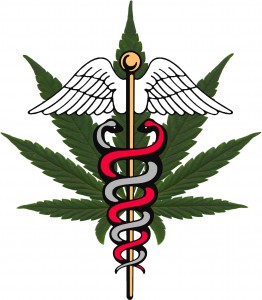Recently I read the Cassie Shortsleeve’s Men’s Health article, “The Truth About Marijuana.” In it, the author meets with Dr. Mahmoud Elsohly, the director of the University of Mississippi’s Marijuana project. This project has been, as the article states, “the country’s one legal source of marijuana for scientific studies.” Anyway, Shortsleeve describes her meeting with Dr. Elsohly, stating that, as she shook the doctor’s hand, he was wincing in pain from having thrown out his back two days prior. At this point, the following thought ricocheted through my mind: how convenient, he has a basically endless source of expertly grown marijuana with which to alleviate his pain. Smoke hardy, dude!
Then I hit this line in the article, “only Elsohly isn’t thinking about lighting up: he knows too much.” Shortsleeve’s article goes on to discuss all the hundreds of chemical compounds in marijuana, and the many more that are created when burning those compounds at high heat. “There are many indications for which THC would be a good medicine,” says Elsohly, “if you have the right formulations and dosing.” The doc’s hesitance to use marijuana apparently stems from a fear or lack of knowledge surrounding amounts to use and the mystery of using those other hundreds of compounds produced when smoking cannabis. The author hints at as much, claiming that when burning cannabis, “the 500 or so chemical compounds in marijuana can produce hundreds or thousands of byproducts–many of which are thought to be carcinogens.”
She then writes perhaps my favorite line from the article, “…while many researchers think that–logically–marijuana smoke should cause lung cancer, studies remain inconclusive.” “Inconclusive,” here having the meaning: “we have no fucking idea why cannabis doesn’t hurt people, but it doesn’t.” A recent UCLA study concluded “Our pooled results showed no significant association between the intensity, duration, or cumulative consumption of cannabis smoke and the risk of lung cancer overall or in never smokers.”
It seems, at the heart, the good doctor is saying that they haven’t quite figured out how to titrate the medicinal qualities of marijuana into standardized, measurable quantities. All that is well and good, and I agree that it is a pickle trying to prescribe the right amount for someone based on symptoms alone, considering the vast variation in the amount needed per person. Another point brought to light in this article is that, in the medical community, smoking is not deemed an “accepted route of administration for medication.” Elsohly echoes this sentiment, “there are so many variables in the smoking process. It’s ludicrous to think you could come up with a dosage.” To me, smoking cannabis is such an effective mode of delivery because you can completely control how much you need/use. When you take a pill, you just get X amount of medication–even if you only need half of X. Start with a small puff, wait a few minutes, and either have more or realize you’re good.
Another thought struck me: Dr. Elsohly is one of the leading cannabis scientists in the field, has he ever been high? Why, at the onset of back pain, does marijuana (the drug that he studies professionally) not even register with him as a viable option? Perhaps Elsohly simply falls into the same trap that claims many great scientific minds: their intellectual prowess and powers of logical analysis can come at the cost of common sense and practical application. (My roommate in college was a brilliant mathematician and computer scientist, but, literally, could not figure out how to get toast out of the toaster). Perhaps it is something else, like the stigma and propaganda surrounding cannabis. The point remains, however, this doc “knows too much” to use the abundant and wonderfully effective medicine at his disposal.
I then began to extrapolate this thought and started to wonder if those in power who fight so staunchly to keep pot a shadow industry have any real experience with the drug themselves. It’s not about smoking and suddenly becoming a “believer.” Pot is simply not for everyone and I fully respect personal choice. But shouldn’t there be some level of experiential knowledge of a thing before you label it? I am reminded of a similar issue regarding the pro-life/pro-choice debate. Politics, religion, and personal opinion aside, should a cadre of aged men be creating definitions and rules on reproductive rights of women? When my car needs engine work, should I take it to a dentist?
What I see is a dramatic over-complication of marijuana. My suspicion is that the powers that be are seeking (if not hoping for) a provable, scientific reason to vilify marijuana. Dr. Elsohly’s pot lab has been operating since 1968 and they aren’t any closer to proving that pot is as close to as dangerous as the hype that follows it–just the opposite, in fact. Your back hurts? Have fun getting cortisone shots and potentially unnecessary surgery. Personally, my first (hopefully only) stop on the medication train is marijuana, and I’ll use a scientifically “ludicrous” method of smoking to feel better.










